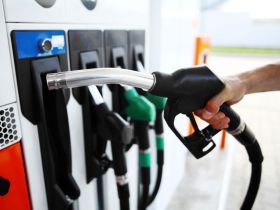Light ends summary: Gasoline cracks tumble as 'revenge demand' wanes
Quantum Commodity Intelligence - Gasoline cracks tumbled to one-month lows at the start of July as record retail prices and recession fears triggered demand worries at the start of the US driving season, eroding supply fears which took hold of the market at the start of last month.
While RBOB futures rebounded on Friday, they were set to end the week over 4% lower, pushing the August crack down $6/b to $40/b as Brent gained $2.6/b over the same period.
The sharp selloff in RBOB futures kickstarted on Wednesday after delayed and keenly-awaited EIA data showed only the second weekly build in US gasoline stocks since late January.
Inventories rose to a six-week high of 221.6 million barrels by June 24, narrowing the gap versus the 2015-2019 average to just 5% as refineries nudged their output up to 9.9 million bpd but – more importantly – as domestic demand cool.
While total product deliveries in the US climbed to 20 million bpd, gasoline deliveries fell nearly 175,000 bpd over the past fortnight to 8.9 million bpd.
That figure was 8% below the pre-Covid five-year average – its largest gap since the Christmas holiday period.
With average US retail gasoline prices sticking close to record highs of $5/gallon, more and more Americans are cutting down on their driving, even as motoring company AAA expects a record number of Americans to hit the road this Independence Day weekend.
Americans planning to take a holiday by car over the next six months dropped to 22.7% in June, according to data released by Conference Board's index this week – the worst figure in four years when excluding the locked-down summer of 2020.
The so-called post-Covid "revenge travel" has started to wane, said analysts.
The weakness in the US kept the transatlantic arb closed during the week, allowing Europe to rebuild stocks while suffering from its own demand problems.
Most recent data for the UK showed retail gasoline sales in the week to June 26 were up 2.3%, but that was mostly driven due to nationwide strikes, which were the worst in 30 years.
Sales were still down 1% from last year, with total fuel sales still their second-lowest weekly average since late April, official UK data showed.
In Spain, May gasoline deliveries hit a new 13-year high, but the monthly growth was just 1.4%, half its usual seasonal gain and well below the average growth of 6.1% reached so far this year, Cores data showed.
That allowed stocks in ARA to recover to a one-month high of 1.21 million mt, Insights Global data showed, with exports to both the US and West Africa shut, while gasoline blending in the hub picked up amid improved supplies of octane boosters.
July Eurobob swaps were down $57.50/mt on the week to $1237.75/mt by the Friday London close, while August fell to $1,1186.75/mt.
The August Eurobob crack was down $5/b on the week to $35.50/b, a six-week low.
Europe continued to suffer from refineries issues, supporting product cracks, with unions in France closing the Fos refinery, while Bayernoil was hit by a lightning strike, with OMV's Austria refinery still only running at 20%.
Asia followed the moves in Europe and the US sharply lower, with the spot RON92 assessment tumbling nearly $10/b on the week to $137.40/b, which left the crack at a one-month low of $28.1/b.
Naphtha
The European naphtha market remained weak during the final week of June, pressured by elevated stock levels and continued sluggish demand from Europe's petrochemical sector as economic growth falters.
Spot cargoes landed in Europe were last assessed at $796/mt, down slightly on the week and pushing the crack to -$21/b.
Cracks remain, however, up from the record low of -$31/b earlier in June, partly due to an uptick in gasoline blending in ARA, which took stock levels marginally lower to 380,000 mt, the latest Insights Global data showed.
Asian naphtha flat prices, meanwhile, managed to nudge higher on the week to $825.75/mt, amid tightening Japanese stocks, but with the crack still down at -$16.5/b as September Brent increased.
The opposite moves in Europe and Asia moved the East-West spread basis August swaps up to $20/mt, which should shift more barrels east, said brokers.



